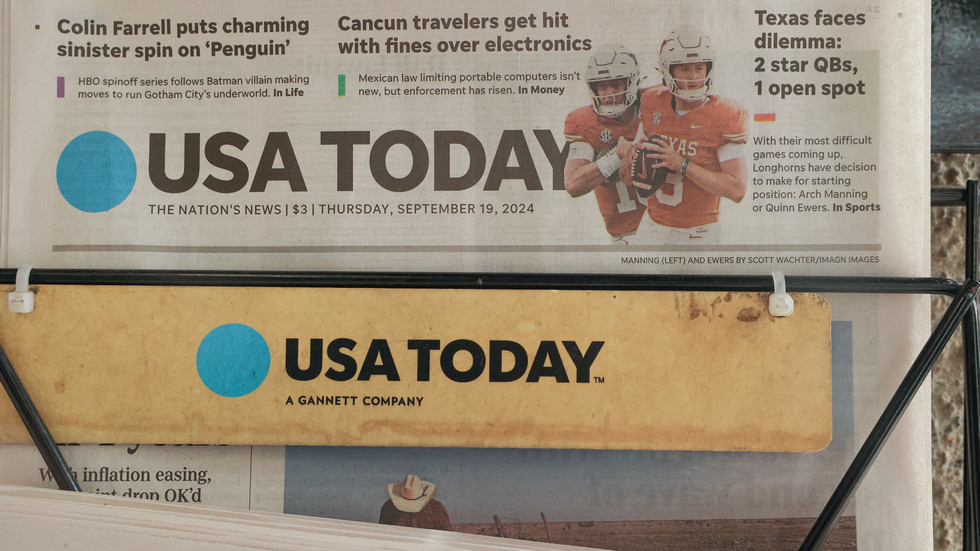As the presidential election approaches on November 5, 2024, USA Today has declared that it will not provide an endorsement for either Kamala Harris or Donald Trump. This marks a notable shift from the newspaper’s previous support of Joe Biden during the 2020 election. USA Today has justified its decision by emphasizing a commitment to presenting readers with trustworthy information, enabling them to make well-informed choices. Instead of endorsing a candidate, the outlet aims to focus on delivering factual reporting amid a highly polarized political climate, positioning itself as a resource rather than a partisan participant.
USA Today joins the ranks of other prominent news organizations, like the Washington Post and the Los Angeles Times, which have also opted out of endorsing a candidate in the upcoming election. The move to forgo explicit endorsements aligns with a broader trend among major outlets to reassess their roles in the electoral process. In 2020, USA Today characterized Biden as a stabilizing force capable of addressing the turmoil attributed to Trump’s presidency. However, their current stance highlights an intention to return to impartial journalism, which has become increasingly critical in a divided nation.
The rationale behind this shift is further reinforced by statements from influential figures within the media industry. Jeff Bezos, the owner of the Washington Post and a prominent billionaire, labeled the decision to abstain from endorsements as “principled.” He argued that supporting a candidate could foster a perception of bias and that such actions rarely influence electoral outcomes. These sentiments reflect a growing concern among journalistic entities about the integrity and perceived objectivity of their coverage, particularly in a time where media distrust is prevalent among the electorate.
In a similar vein, Patrick Soon-Shiong, the owner of the LA Times, rejected a proposal from the editorial board to endorse Harris, believing that a non-committal stance would be less polarizing amid an already contentious political atmosphere. This decision resulted in resignations from three editorial board members who likely felt compelled to take a stand. This fraying within editorial teams over endorsement practices underscores the pressure that media organizations face in navigating their public roles while maintaining journalistic integrity.
Conversely, other institutions, such as the New York Times, have maintained their endorsement practices, asserting their role in shaping public opinion. The outlet recently endorsed Harris, characterizing her as the only “patriotic choice for president,” while expressing outright condemnation of Trump’s qualifications for the presidency. This divergence in approaches between news organizations illustrates the dynamic landscape of political endorsements and reflects the varied strategies being employed in response to the current political climate.
As the election date looms, the decisions of major newspapers like USA Today reflect their attempts to adapt to the expectations of their readership in an increasingly divisive environment. The commitment to prioritizing factual reporting and equipping readers with relevant information may serve to enhance their credibility. However, the varied responses across the media landscape showcase an ongoing struggle with the role of journalistic endorsements, presenting a complex challenge as these organizations seek to balance their influence with the foundational tenets of unbiased reporting in American democracy.

